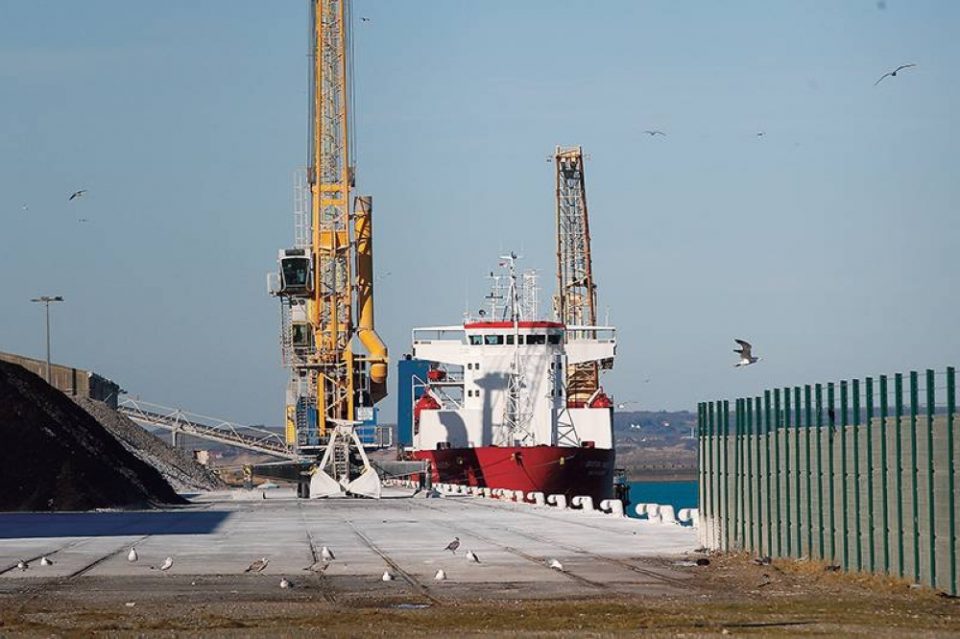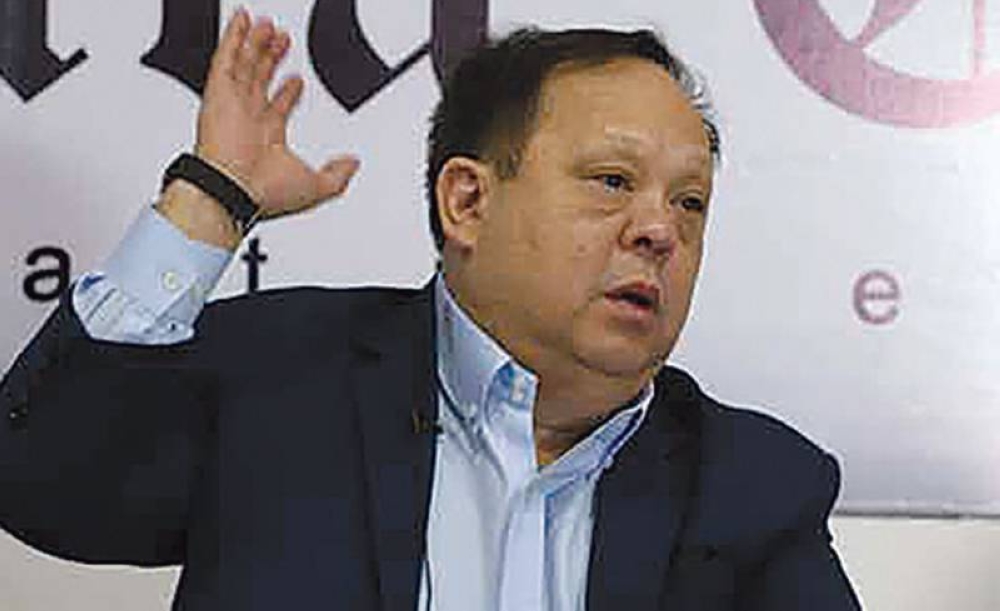A Russian flag cargo ship docks in the port of Boulogne-sur-Mer, northern France, on Saturday, Feb. 26, 2022. French officials say marines patrolling the English Channel area have intercepted a cargo ship sailing under the Russian flag and escorted it to the port of Boulogne-Sur-Mer for an investigation. The interception of the ship, carrying cars, early Saturday was triggered by financial sanctions levied days ago against Russia for its invasion of the Ukraine. AP PHOTO
Read this in The Manila Times digital edition.
THE Association of International Shipping Lines (AISL) said the Russia-Ukraine crisis will complicate the current supply chain problem and will increase shipping costs.
AISL President Patrick Ronas said carriers conducted meetings in the past few days to discuss the impacts of the Russia-Ukraine war on global shipping.
“With the ports in Ukraine being closed, cargo that is on the water will be discharged somewhere else then will be relayed to Ukraine or Russia.
A problem for containers or cargo is already on the way. Shipping lines will stop accepting cargo to Ukraine and Russia in the meantime,” Ronas said.
“With the closure of the ports in Ukraine and the embargo on Russia, ships will be diverted to other ports and services then,” he explained.
What is worrying for everyone is the price of oil. “The price of bunker and fuel oil will increase, as Russia and Ukraine are among the biggest suppliers of such. As for the Philippines, if the war extends, the effect on the price of fuel will be something to watch out for.”
Aside from oil prices, shipping lines expect an increase in freight rates. “Ships entering the Black Sea will increase their insurance coverage considering there is war in the area, and this may be translated to carriers increasing freight rate to cover for this,” Ronas said.
The fate of Filipino seafarers should also be closely monitored because of news that Filipino seafarers were onboard a Turkish vessel that was hit in the Black Sea as a result of the ongoing war between Russia and Ukraine.
Meanwhile, the European Commission (EC) leaders condemn Putin’s war of choice and attacks on the sovereign nation and people of Ukraine and have imposed restrictive economic measures.
In a joint statement, the leaders of the EC, France, Germany, Italy, the United Kingdom, Canada and the United States stood with the Ukrainian government and the Ukrainian people in their heroic efforts to resist Russia’s invasion.
“Russia’s war represents an assault on fundamental international rules and norms that have prevailed since the Second World War, which we are committed to defending. We will hold Russia to account and collectively ensure that this war is a strategic failure for Putin,” the leaders said.
In the past week, they made diplomatic efforts and collective work to defend their borders and assist the Ukrainian government and people in their fight. They imposed severe measures on key Russian institutions and banks, and the architects of this war, including Russian President Vladimir Putin.
“As Russian forces unleash their assault on Kyiv and other Ukrainian cities, we are resolved to continue imposing costs on Russia that will further isolate Russia from the international financial system and our economies,” the joint statement read.
Some of the measures that were undertaken include removing the selected Russian banks from the SWIFT messaging system to ensure that these banks are disconnected from the international financial system and harm their ability to operate globally. The Russian Central Bank was prevented from deploying its international reserves in ways that undermine the impact of the sanctions.
“We commit to acting against the people and entities who facilitate the war in Ukraine and the harmful activities of the Russian government. Specifically, we commit to taking measures to limit the sale of citizenship — so-called golden passports that let wealthy Russians connected to the Russian government become citizens of our countries and gain access to our financial systems,” it said.
They have committed to launch a transatlantic task force that will ensure the effective implementation of the financial sanctions by identifying and freezing the assets of sanctioned individuals and companies that exist within their jurisdictions.



